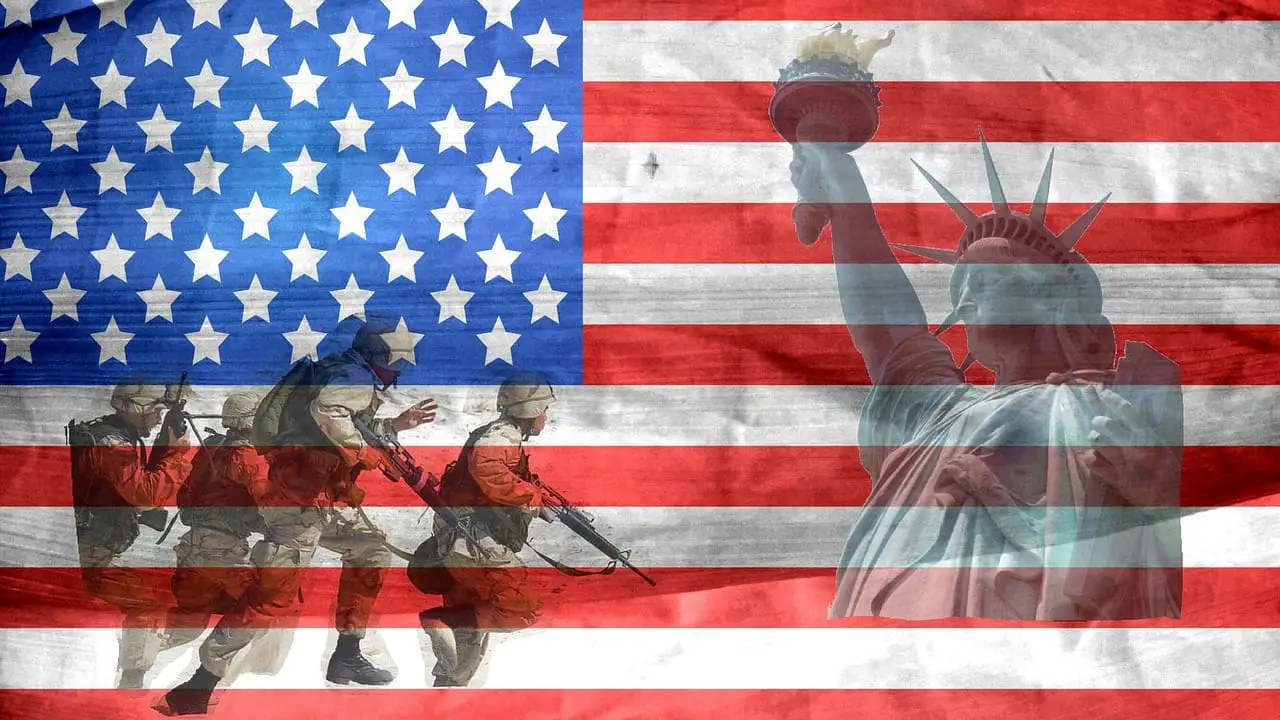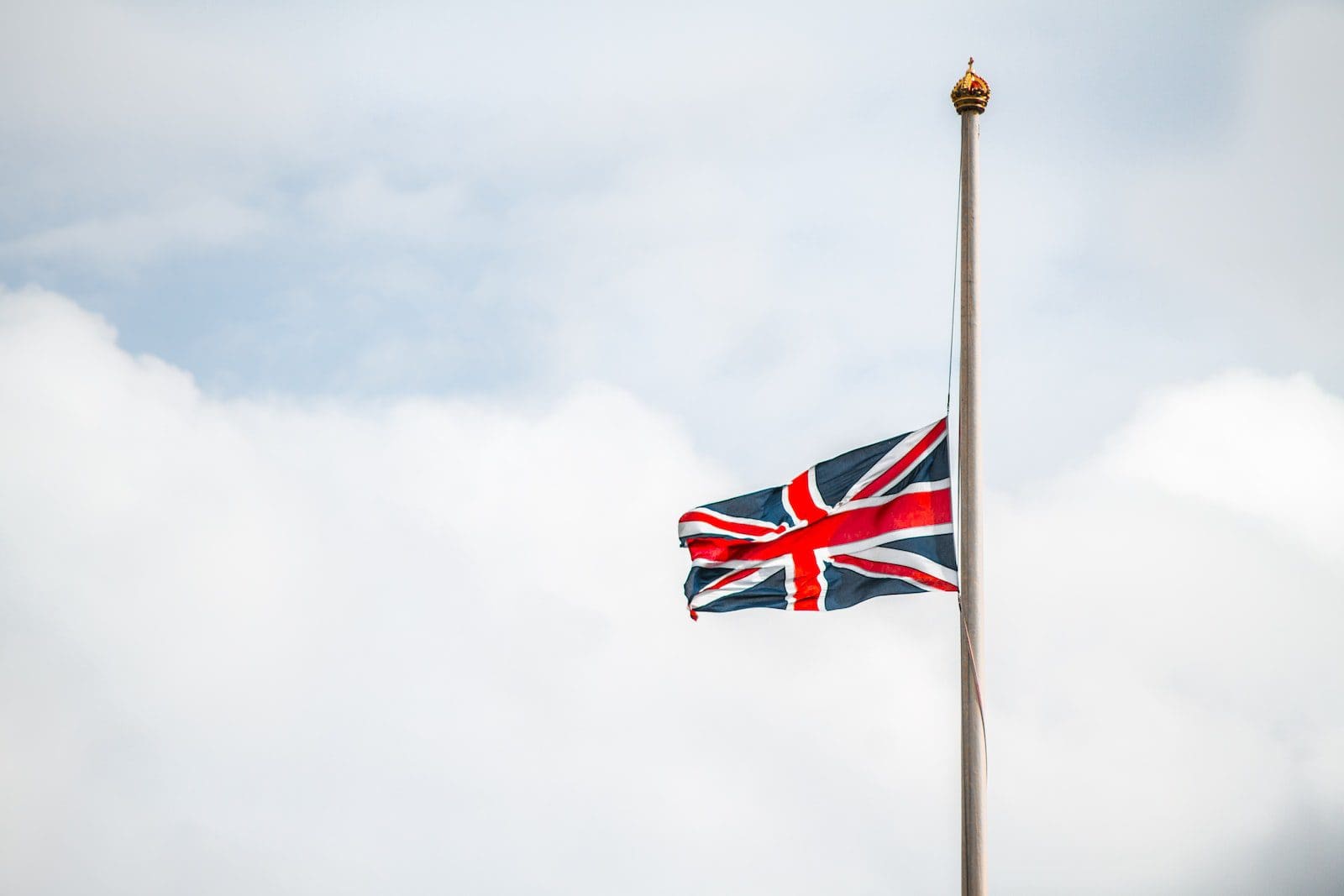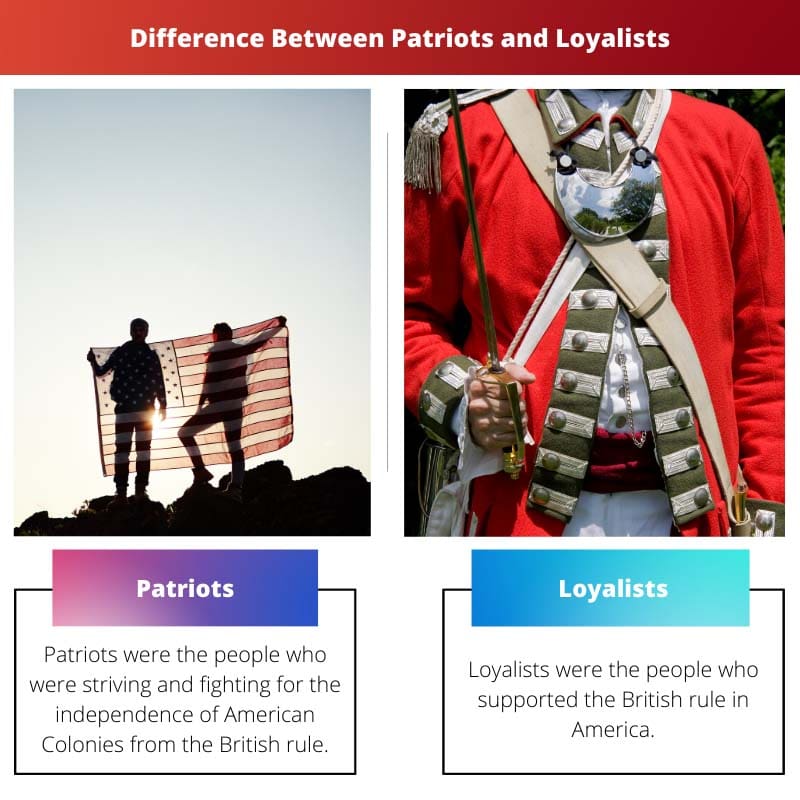The United Kingdom is the country that has ruled over many other countries either by annexing them or by bringing them under its rule.
The country has ruled most of the countries, leaving only 22 territories without its rule. America was also under British rule until it gained independence in 1776.
The American War of Independence has seen people fighting for independence as well as people against independence. The people who stood for independence were the Patriots, while those who stood against independence and British rule were termed Loyalists.
Key Takeaways
- Patriots were those who supported the American Revolution and fought against British rule, while Loyalists were those who remained loyal to Britain.
- The critical difference between the two is their allegiance – Patriots were committed to independence and freedom, while Loyalists believed in maintaining the existing order under British rule.
- The conflict between Patriots and Loyalists was a defining moment in American history, shaping the course of the American Revolution.
Patriots vs Loyalists
In the context of American history, Patriots were the colonists who supported the American Revolution and fought for independence from British rule. They believed in the principles of liberty and self-determination. Loyalists were colonists who remained loyal to the British Crown and opposed the Revolution; they believed in maintaining ties with Great Britain.

Comparison Table
| Parameter of Comparison | Patriots | Loyalists |
|---|---|---|
| What does it mean? | Patriots were the people striving and fighting for the independence of American Colonies from British rule during the American War of Independence. | Loyalists were the people who supported British rule in America because they believed that a unified empire was always strong. Many loyalists were residents of New York City and served as government officials. Some Indians were loyalists because they feared the Americans would take over their land. |
| Also referred to as | Patriots were also called Whigs, Colonials, Rebels and Sons of Liberty. | Loyalists were also termed Tories, Royalists and King’s Men. |
| Aim | The patriots aimed to gain independence for the American colonies from British rule and protect the citizens’ rights. | The loyalists aimed to retain British rule over American Colonies. |
| What did they believe? | Patriots believed the taxation system was unjust because they were given no representation in Parliament. Patriots also believed civic rights should be given to the citizens since they were deprived of all the basic rights, including the right to freedom. | Loyalists believed that the taxation system was fair and that it was necessary to support the central government to protect and maintain colonies and military developments. They believed having no representation in parliament was only because of the physical distance between America and London. They also said that the citizens were given the necessary rights and, therefore, it should continue. |
| Some famous patriots and loyalists | Some famous patriots who fought for independence include John Adams, Thomas Jefferson, George Washington, John Paul, Ethan Allen, Patrick Henry, Been Franklin, etc. | Some loyalists who supported British rule included Benedict Arnold, Joseph Galloway, Andrew Allen, John Butler, David Mathews, etc. |
What are Patriots?
Patriots in the American War of Independence were the people who stood for the independence of their country and fought for it because they believed that it was their right to remain free.
Patriots were also termed Whigs, Rebels, Colonials and Sons of Liberty.
Patriots were against the taxation system imposed by the British government, and they asked the government to give them representation in the parliament if they wanted to tax.
They also believed civil rights should be given to the country’s citizens.
In the end, the Patriots won the American War of Independence.
Some of the famous patriots include George Washington, John Adams, Ethan Allen, John Paul, Patrick Henry, etc.

What are Loyalists?
Loyalists in the American War of Independence were the people who stood by British rule and supported it because they believed that it would strengthen them.
Loyalists were also known as Tories, Royalists and King’s Men.
Loyalists favoured the British Government’s taxation system because they believed it was necessary for the proper functioning of the central government.
They were against giving rights to the citizens.
After defeat in the American War of Independence, Loyalists were made to leave America and therefore took refuge in British colonies and other neighbouring countries.
Some Loyalists are Joseph Galloway, John Butler, David Mathews, etc.

Main Differences Between Patriots and Loyalists
- Patriots were the people who stood for the independence of American colonies from British rule, while Loyalists were the people who stood against British rule.
- Patriots believed that independence was their right and should be given to them. In contrast, loyalists believed that being under British rule would help them remain unified, which was a favourable condition for them.
- Patriots were also known as the Whigs, Rebels, Colonials and Sons of Liberty, whereas loyalists were known as Tories, Royalists and King’s Men.
- Patriots were against the taxation system imposed by British rule. In contrast, Loyalists favoured the taxation system because they thought it was important for the central government to function properly.
- Patriots believed that the citizens should be given civic rights, including the right to freedom, while Loyalists were against giving the rights to the citizens.
- Patriots aimed to gain independence from British rule and protect the rights of the citizens, while the loyalists aimed to retain British rule in America.
- Some patriots are George Washington, John Adams, John Paul, Ethan Allen, Patrick Henry, Thomas Jefferson, etc.; others, some loyalists are Joseph Galloway, John Butler, Andrew Allen, David Mathews, Benedict Arnold, etc.
- After the American War of Independence, the Patriots won freedom for their country and countrymen. At the same time, loyalists were forced to leave the country and take refuge in the neighbouring countries and British colonies.

Last Updated : 11 June, 2023


Emma Smith holds an MA degree in English from Irvine Valley College. She has been a Journalist since 2002, writing articles on the English language, Sports, and Law. Read more about me on her bio page.

This is a well-written piece that delves into the complexities of the American Revolution. The clear distinction between patriots and loyalists is elucidating.
A very informative piece of history about the American War of Independence. It is important to understand the differences between patriots and loyalists to have a comprehensive knowledge about the context of that period in history.
Very well articulated! This article provides an insightful comparison between patriots and loyalists.
I agree, understanding the motivations and beliefs of both sides is crucial to understanding the conflict and its impact.
The article’s description of the Patriots and Loyalists provides a comprehensive understanding of the American War of Independence. Well-researched and engaging.
The witty comparison between the Patriots and Loyalists is quite entertaining. It’s refreshing to encounter such an engaging take on this historical subject.
The comparison table is a great addition to this article. It succinctly captures the key differences between patriots and loyalists.
The analysis of Patriots and Loyalists in this article is intellectually stimulating, offering deep insight into their differing beliefs and actions.
The American Revolution is such a fascinating topic. This article provides a comprehensive overview of the conflict between patriots and loyalists. Great read!
Indeed, an enlightening read that sheds light on this pivotal period in history.
Absolutely, the depth of information here is commendable.
The historical context provided here is invaluable. It’s essential to understand the beliefs and motivations of both patriots and loyalists.
This helped clear up some misconceptions I had about the American War of Independence. Thank you for the detailed explanations.
This article presents a balanced view of the conflict between patriots and loyalists during the American War of Independence. The comparative analysis is especially helpful.